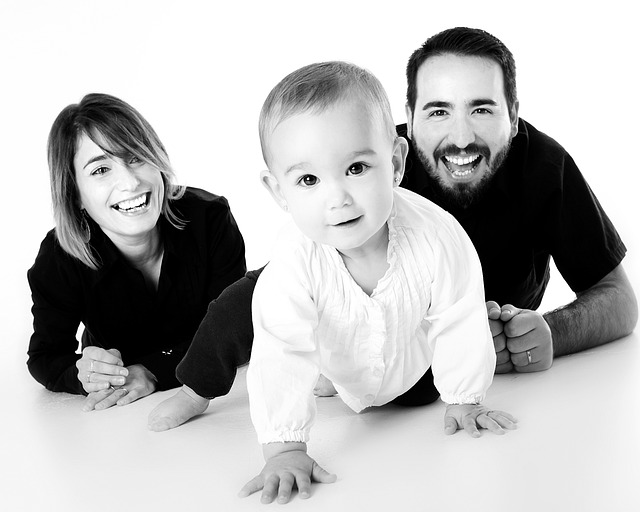Oregon's welfare system, guided by robust Oregon family law principles, prioritizes the best interests of vulnerable individuals, especially children. This intricate network includes foster care, adoption services, and support for at-risk families, aiming to provide every child with a safe, nurturing environment. Key aspects include fair legal procedures, access to resources like counseling and medical care, and partnerships between legal professionals, social workers, and community organizations. Community advocacy groups empower voices to highlight unique challenges faced by foster care youth, while Oregon family law offers protections like due process rights and stable custody arrangements. Collaborative efforts drive positive change, addressing emotional, educational, and socio-economic challenges to improve outcomes for vulnerable youth.
In Oregon, the welfare system plays a crucial role in safeguarding the well-being of vulnerable children. This article delves into the multifaceted approach needed to advocate for these youth, exploring key aspects of Oregon’s child welfare framework and its intersection with family law. We identify challenges faced by foster caregivers and present effective advocacy strategies within the community. Furthermore, we examine legal protections and services available, emphasizing collaboration among stakeholders to drive positive change for Oregon’s most vulnerable population. Understanding these components is vital for enhancing the lives of children in care through robust Oregon family law support.
- Understanding Oregon's Welfare System: A Framework for Children's Rights
- The Role of Family Law in Supporting Vulnerable Youth
- Identifying Challenges: Barriers to Justice for Foster Caregivers
- Advocacy Strategies: Empowering Voices Within the Community
- Legal Protections and Services for Oregon's Child Welfare Population
- Building Alliances: Collaboration for Positive Change
Understanding Oregon's Welfare System: A Framework for Children's Rights

Oregon’s welfare system is a complex network designed to support vulnerable individuals, including children. At its core, it revolves around the principles of Oregon family law, emphasizing the best interests of the child and their overall well-being. This system includes various services such as foster care, adoption, and support for at-risk families, all aimed at ensuring every child has a safe and nurturing environment.
Understanding this framework is crucial when advocating for children’s rights within the Oregon family law context. By recognizing the existing resources and laws, advocates can navigate the system more effectively, ensuring that each child receives the necessary care and attention to thrive. It involves knowing their legal entitlements, understanding the processes involved in foster care or adoption, and fostering partnerships with social workers and legal professionals to create a strong support system for Oregon’s young residents.
The Role of Family Law in Supporting Vulnerable Youth

Oregon family law plays a pivotal role in supporting vulnerable youth within the welfare system. It acts as a lifeline for children who have experienced trauma, abuse, or neglect, offering them a chance at stable, loving homes. The law provides a framework to ensure these young individuals are placed in safe environments and receive the necessary support for their physical and emotional well-being.
By implementing robust Oregon family law procedures, social workers can navigate complex cases effectively. This includes facilitating access to resources like counseling, education, and medical care, which are crucial for a child’s healthy development. Moreover, these legal mechanisms protect the rights of both children and families involved, fostering a sense of fairness and justice during challenging times.
Identifying Challenges: Barriers to Justice for Foster Caregivers

In Oregon, fostering a child is an altruistic act that comes with significant legal and emotional challenges under the state’s family law framework. While the intent behind foster care is to provide a stable home for children in need, caregivers often face barriers when seeking justice and support within the system. One of the primary hurdles is navigating complex legal procedures, which can be overwhelming for both foster parents and the children they care for. Oregon family law requires meticulous documentation and adherence to stringent rules, potentially hindering caregivers’ ability to advocate effectively for the rights and needs of the children in their custody.
Moreover, the emotional toll on foster caregivers cannot be understated. Many struggle with access to mental health resources, leaving them ill-equipped to handle the stress and trauma that can arise from fostering. These challenges are exacerbated by a lack of public awareness about the struggles faced by Oregon’s foster care system. Raising voices and advocating for systemic changes under Oregon family law is crucial in addressing these barriers and ensuring that both caregivers and the children they protect receive the justice and support they rightfully deserve.
Advocacy Strategies: Empowering Voices Within the Community

In advocating for children in the welfare system in Oregon, a robust strategy involves empowering voices within the community. This includes fostering a culture where local residents, community leaders, and organizations actively participate in shaping policies that affect vulnerable youth. By engaging in public discussions, attending town hall meetings, and utilizing social media platforms, these voices can bring attention to the unique challenges faced by children in foster care, such as access to quality education and mental health services.
One effective approach under Oregon family law is to encourage partnerships between schools, community centers, and welfare agencies. Collaborative efforts can lead to tailored programs that support the academic and social-emotional well-being of foster children. Additionally, community-based advocacy groups play a crucial role in providing a safe space for these youth to share their stories and advocate for their rights, ensuring their voices are heard within the legal and social systems.
Legal Protections and Services for Oregon's Child Welfare Population

In Oregon, the child welfare system is governed by a robust legal framework designed to protect and serve the best interests of children. The state’s family law code outlines various protections for minors involved in the welfare system, ensuring they receive fair treatment and access to essential services. These legal safeguards include provisions for due process rights, allowing children and their families to challenge decisions made regarding their care. Oregon’s family courts play a pivotal role in overseeing custody arrangements, fostering stability and security for vulnerable youth.
The state offers a comprehensive range of services to support children within the welfare system. This includes specialized education programs, mental health counseling, and medical care tailored to their unique needs. Additionally, Oregon encourages adoption and permanent placements as part of its efforts to provide lasting homes for foster care residents. These services are crucial in helping children thrive and overcome challenges associated with their entry into the child welfare system, ultimately aiming to prepare them for successful transitions into adulthood.
Building Alliances: Collaboration for Positive Change

In advocating for children in the welfare system in Oregon, building strong alliances is crucial. This involves fostering partnerships between legal professionals, social workers, community organizations, and families themselves. By collaborating, these groups can create a more holistic support system that addresses not just legal needs but also emotional, educational, and socio-economic challenges faced by vulnerable children.
Oregon family law plays a pivotal role in this alliance, providing a framework for protecting the rights of children while ensuring their well-being. Legal advocates work closely with other stakeholders to navigate complex systems, advocate for resources, and ensure that policies align with the best interests of the child. This collaborative approach is essential for driving positive change and improving outcomes for Oregon’s most vulnerable youth.






